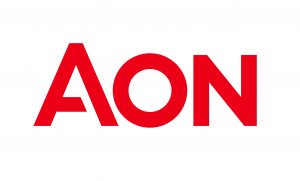Theresa is a Technology Business Partner at Aon, having worked in insurance and IT since 1992 in a variety of roles. She also leads the LGBT professional network for insurance, Link, and is passionate about diversity and inclusion within the industry, including encouraging it to make the most of diverse teams to allow for greater innovation and profitability.
Theresa Farrenson has over 20 years’ experience in IT, most of it spent at Aon. She uses this experience to develop IT strategies that support and deliver Aon’s business strategy. Beyond this, she is passionate about diversity and inclusion and is on a mission to improve the profile of the Insurance industry and encourage it to capitalise on diverse teams to improve innovation and ultimately profitability.
Why did you choose a career in the industry?
Like many graduates I wouldn’t say I actively chose my first job. I applied for many jobs from professional services firms to software houses (companies that build and sell IT solutions). During my studies I realised that I needed to choose whether to focus on the technical path or focus on the businesses that use technology. I chose the latter. I ended up on a graduate scheme for Sherwood, a company focussed on delivering systems for the insurance industry. I realised that there was lots of potential for maximising use of technology in insurance, especially 25 years ago. So I stayed.
But somewhere along the way I realised that insurance changes people’s lives. It is what enables us to pick up and start again when the worst happens. It supports the businesses large and small weather economic uncertainty. It puts people back in homes when their house has flooded, it rebuilds communities after a tsunami hits. And this is the reason I kept staying.
What do you enjoy most about your job?
I like the variety. I am the relationship manager between the business units under my remit and IT. This can range from helping and advising business project managers and delivering the technology elements of business projects to working with IT teams to understand the impact of IT projects on my business units. One day I can be fact-finding for a project, another I can be responding to an escalation from business managers. Risk management is inherent within my role: whether it is reviewing implementation plans to ensure that possible problems are considered and mitigated and there is no adverse impact on the business, or guiding project managers to ensure key issues such as data privacy and security form part of their planning considerations. Sometimes I think this can come across as negative, it can seem that I am always looking for the problems, but the reason I want to know about the potential obstacles is so that I can plan the best route to overcome them.
Beyond the “day” job, I am also involved in Aon’s Diversity initiative and a member of the Diversity Council. I lead Linking Generations, the network, working to explore the complexities of a multi-generational workforce. In addition I am co-chair of the cross industry LGBT+ network, LGBT Insurance Network (Link). This means that my day can also consist of meeting with companies that are planning to start their own LGBT networks or talking to their network leaders and Diversity & Inclusion professionals about upcoming events and plans to improve inclusion in workplaces. I work with volunteer teams to deliver events and create opportunities for cross industry collaboration. This gives me the opportunity to meet with executive leaders across insurance, an opportunity that would not necessarily have arisen in my IT role. I have also developed my organisational skills and influencing skills: which are of use in all aspects of my professional life. Sometimes it is stressful, but it is never boring.
What would you like to achieve in the future?
There is no simple answer to this question, over the years you find yourself asking this of yourself multiple times. For me, there are two clear paths:
- From a technology perspective I want to provide solutions that help my organisation to deliver great services to its clients. Sometimes the role of technology is invisible or taken for granted, other times it is front-and-centre. My specific interest is exploring ways to use technology to improve the client experience and to keep that as consistent as possible across country boundaries.
- From a diversity & inclusion perspective it is my goal to help companies to create inclusive cultures: where difference is celebrated and leveraged, where people can bring the best of themselves and contribute fully to the success of the organisation they work in. To fully achieve this we need to unpack some of our thinking and assumptions and challenge ourselves to see life from different perspectives and recognise talent in new forms. I believe that by welcoming a wide range of people into insurance and challenging norms, we can unlock innovation potential and do great things.
What are the current challenges the industry faces?
There are lots of challenges to the industry at the moment, and lots of opportunity. Technology is one of these areas: There is a lot of focus on Finance Technology (FinTech) and Insurance Technology (InsTech). There have been great strides in technology as it gets smaller and smarter: From driverless cars, to using robotics for surgery and using artificial intelligence to make critical decisions. Our expectations as consumers are that services are easy and seamless, we don’t want to have to think about insurance, but we want the comfort of knowing it is there when we need it. This brings ethical challenges of how we can collect and use data to drive decisions. We need to keep delivering new services and keep earning our customers trust that we will treat them fairly – especially when things go wrong.
Do you have any advice for anyone wanting to get into the industry?
I would challenge you to think beyond the image of someone sitting in a call centre, of course this is an element of our industry but a relatively small one. Insurance is a tremendously varied industry; we need all sorts of skills and experience: not only underwriters and brokers but IT, engineers, legal specialists, risk managers, claims advisors and actuaries – almost any skill you can think of. So your path to joining the industry can be as varied. Obvious places to start looking are apprenticeship schemes and graduate programmes but don’t be afraid to approach organisations directly and look on their job pages for vacancies. Get as much experience as you can with internships or other jobs, anything to make you stand out. Don’t be afraid of the things that make you different – they also make you outstanding.


